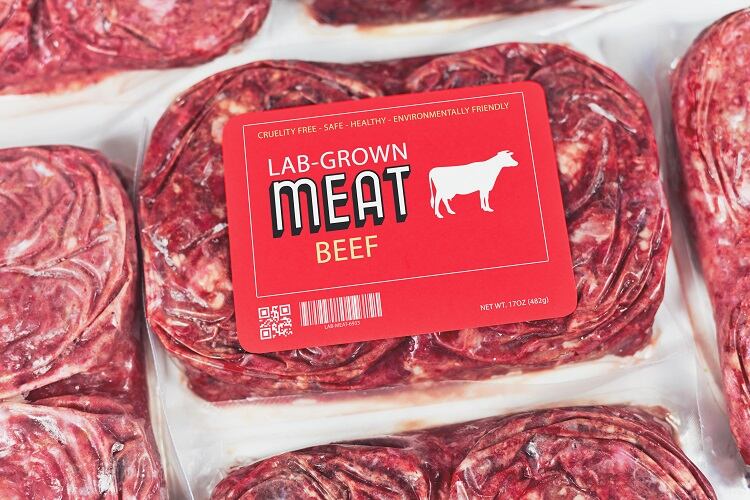This year, the Food Standards Agency (FSA) set out a five-year strategy and vision for a food system in which ‘food is healthier and more sustainable’.
“The food system is evolving and our strategy to deliver this mission needs to reflect and anticipate change,” according to the non-ministerial government department.
Indeed, the food system is fast evolving. Where once nearly all food production was dependent on agri- or aquaculture, food tech innovations are opening doors to alternative ingredients – some of which are grown in a lab.
How much consumers know about these food innovations and importantly, whether they are willing to try them, is key to their success. The FSA’s flagship survey, Food and You 2, is investigating just that.
Conducted by Ipsos, who executed the field work between October 2021 and January 2022, the survey was completed by 5,796 adults from 4,026 households across England, Wales and Northern Ireland.
The results offer a ‘detailed snapshot’ of peoples’ perceptions and behaviours on food-related issues, including sustainability, food security, and their diets, according to Emily Miles, Chief Executive at the FSA.
“The insight is part of the evidence we provide [to governments] so that consumers’ perspectives on the food they eat are heard.”
60% consumers don’t want lab-grown meat
Cell-based meat – which is grown in a laboratory from the cells or tissue of a live animal such as a cow, without having to kill the animal – is not yet on British menus.
In fact, just one lab-grown meat product has received regulatory approval for commercialisation: Eat Just’s chicken ingredient in Singapore.
Europe’s market approval process is more stringent. Now that the UK has withdrawn from the European Union, it has been suggested a more agile regulatory process could be devised to market novel products on home soil.

If lab-grown meat was authorised for commercialisation in England, Wales and Northern Ireland, would consumers be willing to eat it?
According to the FSA’s findings, less than one-third (28%) of respondents reported they would like to try lab-grown meat. This is made up of 9% who said they would definitely like to try it, and 18% who said they probably would try it.
On the other side of the coin, around six in 10 (59%) said they would not be willing to try it. More exactly, 21% said they would probably not like to try it, and 38% said they would definitely not like to try it.
Some, still, were undecided: 14% of respondents reported that they didn’t know whether they would like to try including lab-grown meat in their diet.
Gene-edited food… what?
Gene-edited (GE) and genetically modified (GM) foods is another area on the UK’s radar since leaving the single market.
Indeed, the Genetic Technology (Precision Breeding) Bill has already been introduced to Parliament. If passed, it would allow gene-edited crops to be developed and grown in England for commercialisation across Great Britain.
Understandably, the FSA wanted to work out how much consumers know about GM and GE food. Asked whether they had ever heard or either technology, respondents reported greater awareness and knowledge of GM food than gene-edited or genome-edited food. For example, 42% of respondents had never heard of GE food and 9% of respondents had never heard of GM food.

Why consumers are eating less red meat
The flexitarian trend continues to grow, as consumers swap out meat and fish for plant-based alternatives.
Interested to know exactly how consumption habits are changing across England, Wales and Northern Ireland, participants were asked whether they had eaten less meat, poultry, and fish in the previous 12 months.
A significant proportion of respondents (86%) had eaten less red meat over the last year. Seventy-two percent had eaten less processed meat – for example chicken nuggets, ham, or bacon – over the same period.
More than a third (36% reported they had eaten less poultry and 18% said they eat eaten less fish.
Of those that had reportedly consumed less meat, as well as dairy and eggs, most had done so due to health reasons, for example to be healthier or to lose weight.

The most common reason to have eaten less fish or poultry was for environmental or sustainability reasons, such as their impact on climate change.
40% consumers have never eaten alt meat
In developed markets, the plant-based meat market has grown considerably in recent years.
Back in 2019, the UK meat alternative market was valued at $489.2m, with The Vegan Society predicting it will reach $726.8m by next year, growing at an estimated CAGR of 6.8%.
Querying whether consumers in England, Wales and Northern Ireland had ever eaten meat alternatives, the FSA has found that just a third (32%) had. Twenty-one percent reported they used to eat meat alternatives but no longer do. And a surprisingly high 39% of respondents said they had never tried a meat alternative, such as Quorn, Linda McCartney, or Beyond Meat products.
Those that currently eat meat alternatives due so mostly for environmental or sustainability reasons (41%), for animal welfare reasons (35%) and for health reasons (35%).




